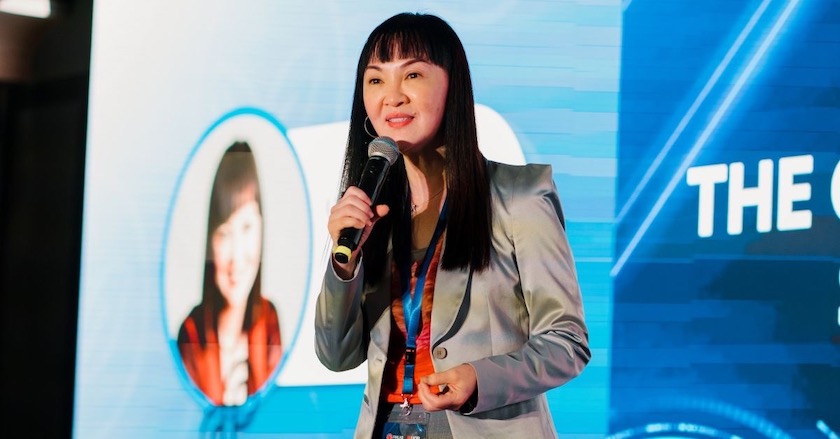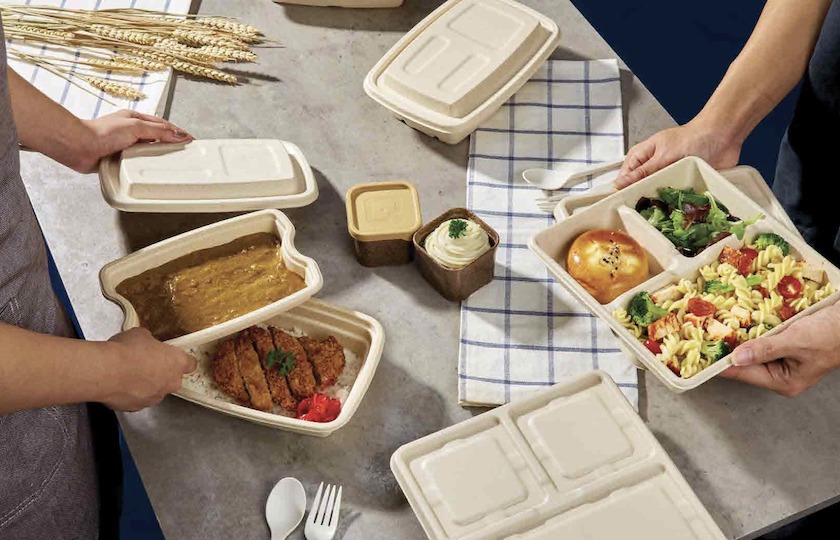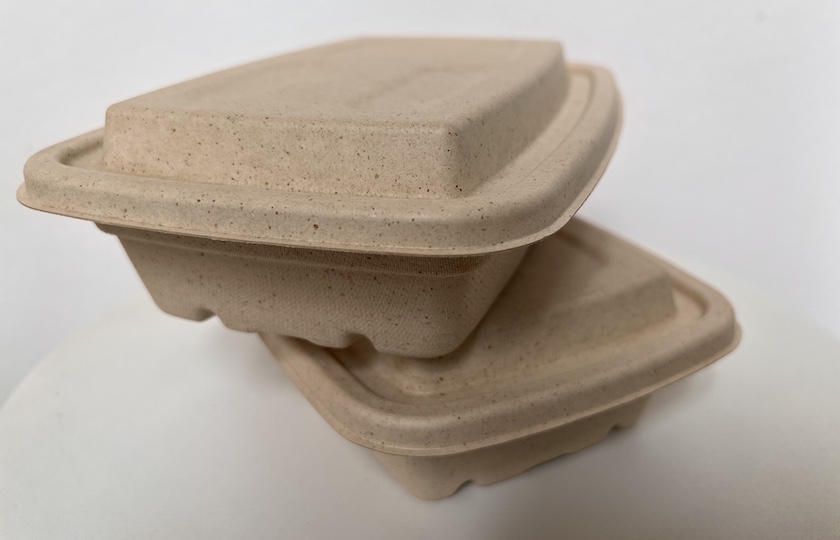A Singaporean scientist has cracked the code to making plastic redundant in the food & beverage industry – creating durable alt-plastic food containers from food waste.
In 2019, just before the Covid-19 pandemic consumer the world, Karen Cheah, a Master of Science in Innovation developed a formula to convert food waste into a sturdy, fully biodegradable food container. She spent the three years of Covid huddled away refining the concept, attracted the support of Singapore’s Temasek Foundation and Enterprise Singapore and by late last year was ready to go to market with her concept, dubbed Alterpacks.
Two significant breakthroughs make Alterpacks’ products different from other biodegradable food packaging. Firstly it is made from waste generated from food processing – principally malt, wheat and barley – rather than virgin materials, so its mere production is already contributing to improving sustainability in the food industry.

“We use food thrown out by manufacturers to create food containers that can go back into the ecosystem,” explains Cheah. “As countries look at producing more food, we turn our attention to what is being left behind and thrown out with the food waste and loss, and use that as a raw material to replace plastic packaging.”
Secondly, her team has cracked the code to create a fully biodegradable food container that doesn’t wilt or burn when heated, doesn’t leak or absorb liquids and can withstand freezing. Much like high-grade plastic containers, Alterpacks can be frozen to as low as minus 40 degrees Celsius, then heated in an oven to a temperature as high as 260. A next-generation iteration of the material in final pre-market testing can literally be placed on a naked gas flame without singing or degrading.
Last December, Cheah received her first order, valued at a meagre $28.62. “At that point, we wondered if we would ever make it,” she shared with Viable.Earth during the recent Thaifex Anuga food industry exhibition in Bangkok. It was only a matter of weeks, however, before she received her next order – for 1000 trays – thus facing a new problem: how to ramp up production and fulfil the order.
Fast-forward to May and the company is already drawing attention from retailers and food producers in multiple markets. The range of products has grown and more products are in the final stages of planning – including significantly a single-use coffee cup and matching lid which can be home composted or degrade in a landfill. Viable.Earth was also shown cutlery including a serrated knife that actually cuts – and doesn’t break when bent like plastic or wooden options.

Cheah says Alterpacks is planning to create its grain-based material in flat sheets, making it available to companies to shape their own packaging solutions and utensils.
“Alterpacks is not a food-containers company, we’re a new materials company,” she explains.
“Our mission is to try and first take the low-hanging fruit – which is to replace all single-use plastics with our material. And then in the long term, we’re going to be supplying our material as a sheet for industry as a replacement to paper so that they understand that you can actually take something that you discard, or you feed to animals, and convert it into something that can be of much higher value.”
The company has already established a manufacturing plant in China as it gears up to supply clients coming on board as far away as Australia and the UK. Among early clients are supermarkets that are changing out plastic trays for fruit, and high-profile Vietnamese pizza restaurant chain and FMCG manufacturer Pizza 4P’s.
While the alt-plastic food containers out now have multiple uses for restaurants providing home delivery and grocery stores, the most exciting application in our view is the coffee cups. While some innovators are repurposing paper-based single-use coffee cups in road paving and other applications, the requirement for plastic lining to ensure the cups are leakproof makes them unsuited to home composting or recycling like other paper products.
Lids, meanwhile, are usually plastic and while recyclable in theory need to be separated from the cups to do so.
Alterpacks’ alt-plastic food containers are made from material that is 100 per cent organic, 100 per cent biodegradable and 100 per cent fit for purpose as a coffee cup or food container.



